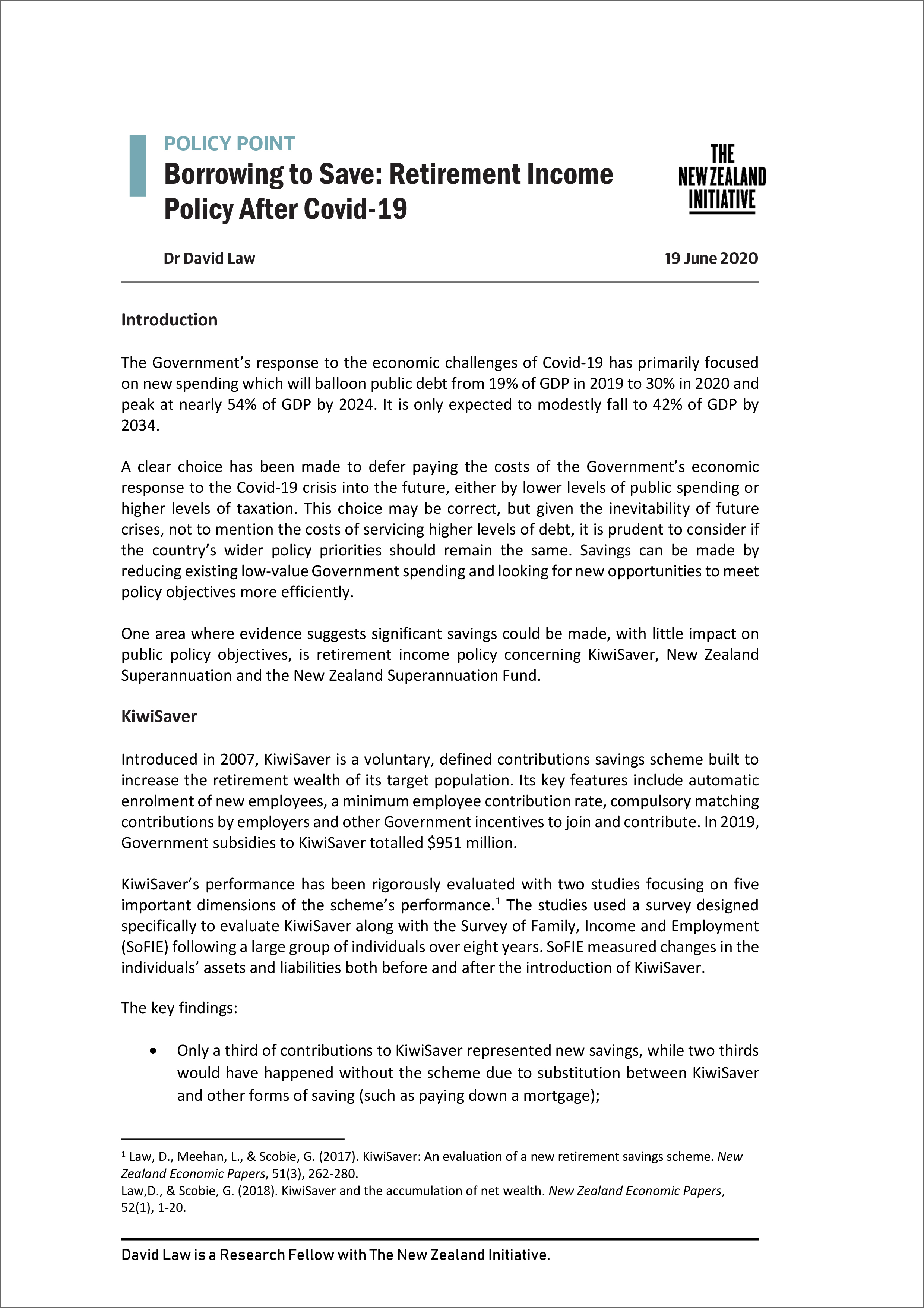The Government’s response to the economic challenges of Covid-19 has primarily focused on new spending which will balloon public debt from 19% of GDP in 2019 to 30% in 2020 and peak at nearly 54% of GDP by 2024. It is only expected to modestly fall to 42% of GDP by 2034.
A clear choice has been made to defer paying the costs of the Government’s economic response to the Covid-19 crisis into the future, either by lower levels of public spending or higher levels of taxation. This choice may be correct, but given the inevitability of future crises, not to mention the costs of servicing higher levels of debt, it is prudent to consider if the country’s wider policy priorities should remain the same. Savings can be made by reducing existing low-value Government spending and looking for new opportunities to meet policy objectives more efficiently.
This report argues there is one area where evidence suggests significant savings could be made, with little impact on public policy objectives: retirement income policy concerning KiwiSaver, New Zealand Superannuation and the New Zealand Superannuation Fund.
Policy Point: Borrowing to Save: Retirement Income Policy after Covid-19
19 June, 2020



